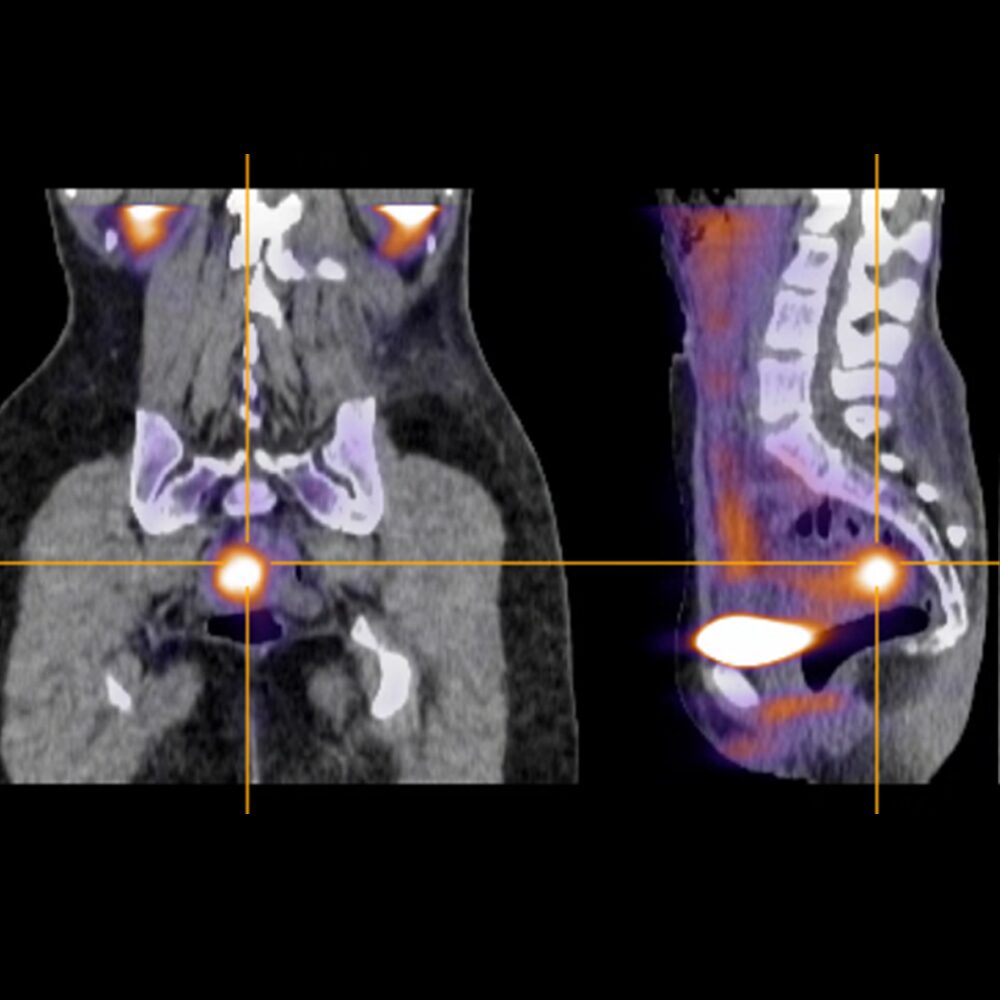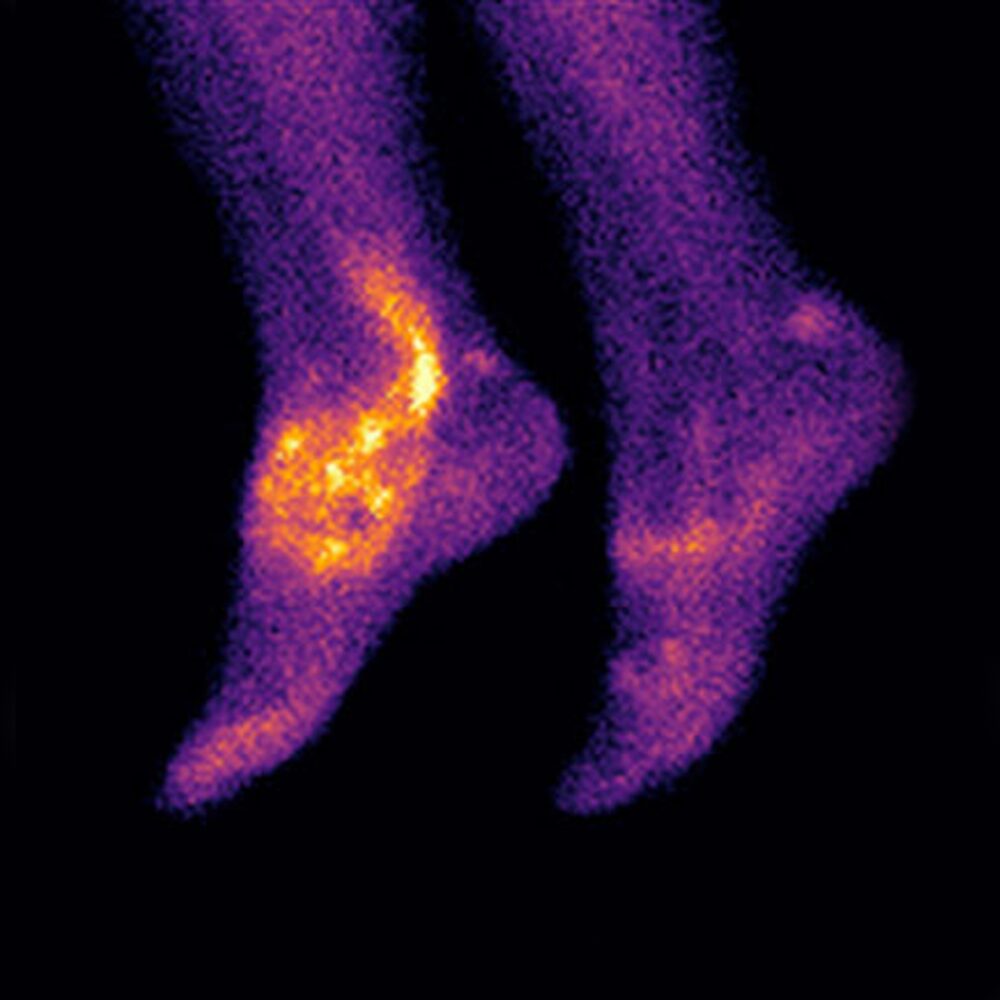Transforming Care with GROUND-BREAKING Molecular Imaging Technology
We are passionate about developing new imaging solutions to enable the delivery of personalised medicine to more patients – ensuring each individual receives the right treatment at the right time.




Images Courtesy of Prof C Becker, University of Oxford and Dr T Garrood, Guy's Hospital
Serac Healthcare develops innovative imaging solutions for unmet medical needs
Serac Healthcare is focused on bringing to market a molecular imaging agent, maraciclatide, in two primary indications, endometriosis and inflammatory arthritis. Serac Healthcare is exploring the potential for this novel imaging marker to enable earlier and more effective treatment decisions to improve the quality of life and outcomes for patients and to reduce healthcare costs.
Developing a non-invasive test for endometriosis
The growth of endometrial tissue is dependent upon the development of new blood vessels (angiogenesis) to supply oxygen and nutrients, which studies have shown can be imaged with 99mTc-maraciclatide.
Endometriosis is extremely hard to diagnose as there are so many possible causes of the symptoms associated with endometriosis. The only available option for diagnosing all types of endometriosis requires invasive laparoscopic surgery.
&
Bringing personalised medicine to inflammatory arthritis
Therapies that can slow or even halt disease progression are available, but their effective use is dependent upon an accurate assessment of disease activity (inflammation) in the joints. However, it remains a challenge to identify which treatment is best for each patient.
99mTc-maraciclatide planar imaging has the potential to image the whole body, highlighting total inflammatory load in the joints in a 20-minute scan, producing images that are easy to interpret even to the untrained observer.
Endometriosis CaRe Centre, University of Oxford
Pain regarded as normal or expected part of menstruation
Early symptoms can be vague and mistaken for other conditions
Patients may not be comfortable discussing menstrual issues with physicians
Physicians and patients might lack awareness of endometriosis
9 year average to diagnosis
which often requires surgery
No imaging solution exists for the most common subtype of endometriosis: superficial peritoneal disease
Endometriosis - a diagnostic challenge
Endometriosis is a common inflammatory disease that affects one in 10 women and female-born individuals during their childbearing years, about 190 million women worldwide.
It occurs when endometrial tissue, which lines the uterus (the endometrium), grows in any other part of the body.
Endometriosis is frequently painful and is associated with infertility. It typically results in multiple physician and hospital visits, multiple scans and often laparoscopic (keyhole) surgery is the only way to reach a definitive diagnosis.
As a result, there is an average delay of approximately 9 years to secure a diagnosis. A significant factor in this delay is the lack of non-invasive tests capable of detecting all types of endometriosis.
Head of the Centre for Rheumatic Diseases, King’s College, London
Inflammatory arthritis - a disease management challenge
Inflammatory arthritis encompasses several chronic, progressive, painful, incurable conditions in which the body’s own immune system attacks the joints. If untreated they can result in irreversible joint damage and permanent disability. Multiple therapies are available that can slow or even halt disease progression, but difficulty in determining when joints are inflamed means that patients are often over or under treated.
Physical examination: subjective and does not always correlate to underlying disease
Blood tests: no definitive marker
X-ray: images irreversible damage already done to the joints
Ultrasound: operator-dependent, time-consuming and suitable only for a small number of joints
MRI: expensive and not always readily accessible

99mTc-Maraciclatide
Our groundbreaking molecular imaging agent for endometriosis and inflammatory arthritis.

Empowering Clinicians
See how our technology will empower physicians.

About us
Serac Healthcare is a clinical radiopharmaceutical company with deep expertise in discovering, developing, and commercialising innovative molecular imaging technologies.
Using these targeted technologies to underpin personalised medicine in the fields of endometriosis and inflammatory arthritis, Serac Healthcare is focused on bringing to market effective tools to accelerate diagnosis, and to deliver earlier and more effective treatment decisions.
Investment opportunities
Serac Healthcare is developing maraciclatide to address major unmet medical and societal needs.
Serac Healthcare is a privately owned, clinical-stage radiopharmaceutical company. We are always ready to talk to investors who match our ambitions and can help us excel. If you would like to discuss investment opportunities, please do get in touch.

Latest News
- 12/02/2026
⁹⁹ᵐTc-maraciclatide Granted FDA Fast Track Designation for the Visualization of Inflammation in Interstitial Lung Disease
Serac Healthcare Limited announced today that the US Food and Drug Administration (FDA) has granted Fast Track Designation to 99mTc-maraciclatide as a diagnostic SPECT-CT agent for the “visualization of inflammation in the lungs of patients with known and suspected interstitial lung disease (ILD).”
- 22/10/2025
Publication of Clinical Results: ⁹⁹ᵐTc-maraciclatide Demonstrates Excellent Potential as a Whole-Body Imaging Method for Rheumatoid Arthritis
Serac Healthcare announces that the findings from a Phase II study evaluating a novel molecular imaging agent, 99mTc-maraciclatide, as an imaging marker for rheumatoid arthritis (RA) have been published online in Academic Radiology.
- 09/10/2025
Chapter on 99mTc-maraciclatide Published in the 2025 EANM Technologists’ Guide
Serac Healthcare highlights that a chapter on 99mTc-maraciclatide as an imaging agent for diagnosing endometriosis was published in the European Association of Nuclear Medicine’s Technologists' Guide 2025, which launched at EANM’s annual congress this week.

